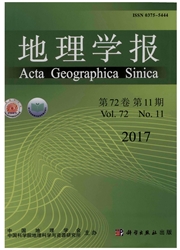

 中文摘要:
中文摘要:
基于“推一拉”理论、新经济学劳动力流动理论,剖析了农民进城落户意愿的城乡作用力、农民进城落户的内部影响因素,并结合郸城县169份农户有效问卷和村干部调查数据,采用Logistic回归模型进行了实证检验。结果表明:①农民进城落户意愿可用“推力一拉力”范式解释,包括生活便捷程度、子女的受教育环境、养老医疗等社会福利保障水平、家庭收入和非农就业、消费和生活成本,其中,便捷的生活环境和良好的子女受教育环境是最大的城镇拉力,没有稳定的非农工作是最大的城镇推力。②农民进城落户决策的影响因素涉及个人因素、家庭因素和村庄因素三个层面。年龄、文化程度、家庭生活水平、亲朋好友是否进城落户、村庄医疗卫生条件是影响郸城县农民进城落户决策的主要因素,其中文化程度、亲朋好友是否迁户的影响效应为正,年龄、家庭生活水平及村医疗卫生条件的影响效应为负。
 英文摘要:
英文摘要:
Based on the "PUSH-PULL" theory and the labor migration theory of new economics, this article, first of all, analyzes all kinds of driving forces on peasants' desire and influencing factors for urban household registration. Then, by using the Logistic regression model, the article examines these theories with 169 valid questionnaires, which were collected from the households and village leaders in Dancheng County in December, 2010. Some results can be drawn as follows. (1) The main "PUSH-PULL" factors include the convenience de- gree of living environment, education environment, pension, medical and social security level, family income,off-farm employment and the cost of living in cities. The convenience degree of living environment and the edu- cation environment are the strongest "PULL" forces of urbanization. Furthermore, the strongest "PUSH" forces are temporary jobs in cities. (2) The influencing factors of peasants' desire for urban registration household have close relation to personal characteristics, family characteristics and village characteristics. The results sug- gest that the main factors are "age", "educational level", "household living standard", "whether a friend or a fami- ly member has migrated to the city", and "the medical services level of the village". The first two factors play a positive role and the last factor plays a negative role.
 同期刊论文项目
同期刊论文项目
 同项目期刊论文
同项目期刊论文
 期刊信息
期刊信息
